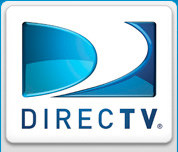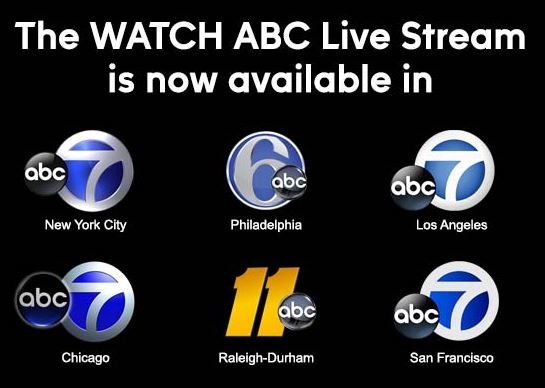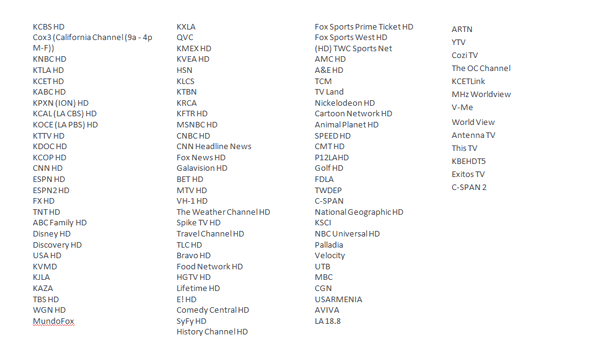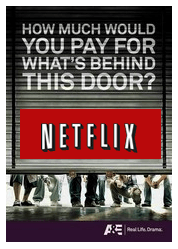 Time Warner Cable won’t engage in an expensive bidding war for ownership of Hulu so it is trying to convince the online video venture’s current owners not to sell.
Time Warner Cable won’t engage in an expensive bidding war for ownership of Hulu so it is trying to convince the online video venture’s current owners not to sell.
Sources tell Bloomberg News the cable company has offered to buy a minority stake in the online video streaming service alongside its current owners, which include Comcast-NBC, Fox Broadcasting, and Walt Disney-ABC.
If Hulu accepted the offer, the other bidders’ offers may not even be entertained.
Among those filing binding bids/proposals with Hulu as of the July 5 deadline:
- DirecTV, which reportedly wants to convert Hulu into an online companion to its satellite dish service for the benefit of its satellite subscribers;
- AT&T and investment firm Chernin Group, which submitted a joint bid, presumably to beef up online video options for U-verse customers.
[flv width=”640″ height=”380″]http://www.phillipdampier.com/video/Bloomberg Plot Thickens in Bidding War for Hulu 7-9-13.flv[/flv]
Bloomberg News discusses how the various bidders for Hulu would adapt the service for their own purposes. It’s all about bulking up online video offerings. (4 minutes)
 Hulu’s new owners could continue to offer the service much the same way it is provided today, with a free and pay version. But most expect the new owners will throw up a programming “pay wall,” requiring users to authenticate themselves as a pay television customer before they can watch Hulu programming. If Time Warner Cable acquired a minority interest and the current owners stayed in place, Time Warner Cable TV customers could benefit from free access to certain premium Hulu content, now sold to others for $8 a month. That premium content would presumably be available to U-verse customers if AT&T emerges the top bidder, or DirecTV could offer Hulu to satellite subscribers to better compete with cable companies’ on-demand offerings.
Hulu’s new owners could continue to offer the service much the same way it is provided today, with a free and pay version. But most expect the new owners will throw up a programming “pay wall,” requiring users to authenticate themselves as a pay television customer before they can watch Hulu programming. If Time Warner Cable acquired a minority interest and the current owners stayed in place, Time Warner Cable TV customers could benefit from free access to certain premium Hulu content, now sold to others for $8 a month. That premium content would presumably be available to U-verse customers if AT&T emerges the top bidder, or DirecTV could offer Hulu to satellite subscribers to better compete with cable companies’ on-demand offerings.
Hulu’s influence will be shifted away from broadcast networks and more towards pay television platforms regardless of who wins the bidding. That could end up harming the major television networks that provide Hulu’s most popular content. Many of Hulu’s viewers are cord-cutters who do not subscribe to cable or satellite television. Placing Hulu’s programming off-limits to non-paying customers could force a return to pirating shows from peer-to-peer networks or third-party, unauthorized website viewing.
Online video rights are so important to cable operators and upstarts like Intel, which wants to launch its own online cable-TV like service, providers are willing to pay a premium for streaming rights.
[flv width=”640″ height=”380″]http://www.phillipdampier.com/video/Bloomberg Why Hulu Is Attracting Billion Dollar Bids 7-8-13.flv[/flv]
Richard Greenfield, analyst at BTIG, and Scott Galloway, chairman and founder of Firebrand Partners, discuss Hulu and the ability to stream on multiple platforms. They speak on Bloomberg Television’s “Bloomberg Surveillance.” (4 minutes)
 The Los Angeles Times reports that pay TV distributors are in a rush to make deals, not only to offer more viewing options for customers, but to potentially get rid of expensive and cumbersome set-top boxes.
The Los Angeles Times reports that pay TV distributors are in a rush to make deals, not only to offer more viewing options for customers, but to potentially get rid of expensive and cumbersome set-top boxes.
Interlopers like Intel, Apple, and Google who want to break into the business have not had an easy time dealing with programmers afraid of alienating their biggest customers. Even DirecTV, which has done business with some of the largest cable networks in the country for well over a decade still meets some resistance.
Acquiring Hulu could be an important part of DirecTV’s strategy to develop the types of services satellite TV has yet to manage well. On-demand programming is no easy task for satellite providers. But if DirecTV acquired Hulu, satellite customers could find DirecTV-branded on-demand viewing through the Internet. The Times speculates DirecTV could even build an online subscription service for subscribers who don’t want a satellite dish, receiving the same lineup of programming satellite customers now watch.
Distributors that acquire enough online streaming rights could even launch virtual cable systems in other companies’ territories, potentially pitting Comcast against Time Warner Cable, but few expect cable operators to compete against each other.
The Government Accountability Office warned head-on competition between cable operators was an unlikely prospect, especially because those cable operators also own the broadband delivery pipes used to deliver programming.
“[Cable companies] may have an incentive to charge for bandwidth in such a way as to raise the costs to consumers for using [online video] services.”
[flv width=”640″ height=”380″]http://www.phillipdampier.com/video/Bloomberg Hulu Buyers Haggle as Final Deadline Looms 7-5-13.flv[/flv]
Bloomberg News explains why Hulu is worth a billion dollars in a changing world of television. (3 minutes)


 Subscribe
Subscribe Free TV? Not quite.
Free TV? Not quite. Cox Communications has found a new way to target cord-cutters and sell television service to its broadband-only customers reluctant to sign up for traditional cable television.
Cox Communications has found a new way to target cord-cutters and sell television service to its broadband-only customers reluctant to sign up for traditional cable television.


 Malone also thinks it is time to discard reliance on cable television to bring home the revenue and profits Wall Street expects. The industry should instead turn its earning attention to broadband, a product few Americans can live without. Malone believes the cable industry is not only positioned to control content distributed on its TV Everywhere online video platform for authenticated cable subscribers, but also have a say in competing content from Netflix, among others, which are totally reliant on the broadband pipes provided by ISPs.
Malone also thinks it is time to discard reliance on cable television to bring home the revenue and profits Wall Street expects. The industry should instead turn its earning attention to broadband, a product few Americans can live without. Malone believes the cable industry is not only positioned to control content distributed on its TV Everywhere online video platform for authenticated cable subscribers, but also have a say in competing content from Netflix, among others, which are totally reliant on the broadband pipes provided by ISPs. Among the top recipients: Comcast, which collects $25-30 million a year and Time Warner Cable, which nets “tens of millions of dollars” from Google, Microsoft, and Facebook.
Among the top recipients: Comcast, which collects $25-30 million a year and Time Warner Cable, which nets “tens of millions of dollars” from Google, Microsoft, and Facebook. Two former interns for Bell Mobility have filed complaints with Canada’s labor department alleging the company exploited an internship program to acquire the ultimate in cheap labor.
Two former interns for Bell Mobility have filed complaints with Canada’s labor department alleging the company exploited an internship program to acquire the ultimate in cheap labor.

